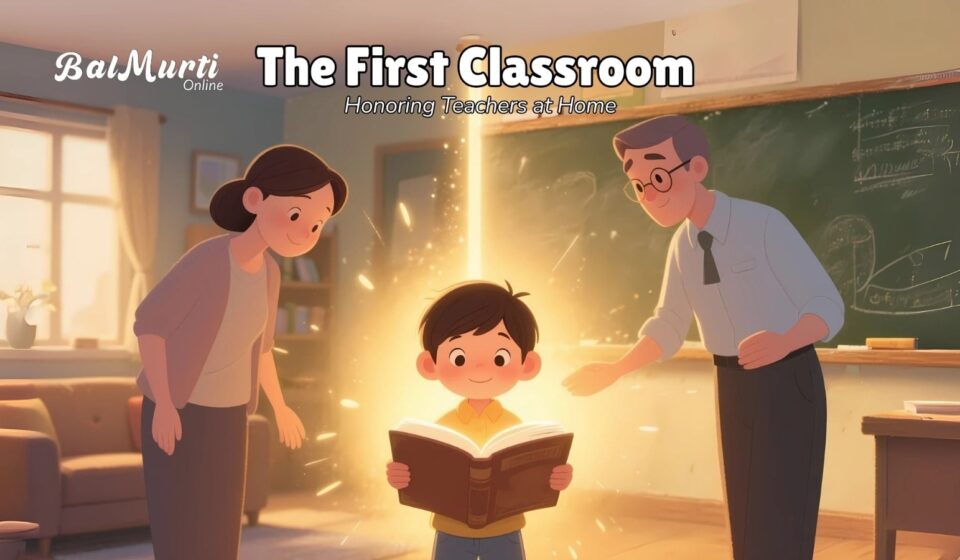
The First Classroom: Honoring Teachers at Home

They say a child’s first classroom is not a school; but a home. And a child’s first teachers are their parents. The lessons shared during those formative years leave deep, lasting impressions; etched into the child’s thinking, values, and behavior for life.
Table Of Content

But as children grow, something begins to shift.

In today’s fast-paced, tech-saturated world, the role of a parent often feels secondary to the flood of information children absorb from screens and peers. The phrase “You wouldn’t understand” has become a common response from children when parents try to guide or advise them. What does that say about the evolving dynamic between parents and children; and how did we get here?
🎧 No time to read? No problem! Tap below and let the article talk to you — your ears deserve some action too.

What Are We Teaching When We Joke About Teachers?
This is a behavior we, as parents, need to consciously correct.
Sometimes, when we’re chatting casually with friends or speaking on the phone, we don’t realize our children are listening. In these moments, we may say things like:
“Remember that teacher? He always wore such oversized clothes.”
“Oh, the one who used to pick his nose during class!”

These remarks may seem harmless or humorous to us, but to a child, they send a very different message. When children hear their parents mock or gossip about a teacher, they absorb the idea that it’s acceptable to make fun of educators. An image forms in their minds; one that slowly chips away at the respect they might otherwise hold for their teachers.
Are we, perhaps unknowingly, reducing teachers to caricatures in our children’s eyes?

When Parents Normalize Excuses
The subtle messages we send as parents carry enormous weight.
For instance, we may hire a tutor for our child; but the moment homework goes unfinished, we might say:
“Just tell your teacher you had a fever.”

In that moment, we’re not just offering a quick escape. We’re teaching something far more dangerous:
- That dishonesty is okay.
- That blaming others is easier than taking responsibility.
- That teachers; and learning; can be taken lightly.

Children watch. They absorb. And they replicate.

Respect Begins at Home
It is our responsibility, as the first teachers, to model how other teachers should be treated.

- Show your child how to listen, not just hear.
- Encourage them to take lessons seriously.
- Guide them to complete their work; not for the marks, but for the love of learning.

If we, as parents, show disregard for a teacher’s effort, how can we expect our children to show respect in return?
Rethinking How We View Educators
A teacher is often older, wiser, and more experienced than we give them credit for. They’ve shaped minds for decades. They’ve adapted to new generations, embraced change, and carried the burden of countless students’ futures.

And yet;
“Oh, he’s about to retire… he’s just teaching extra classes for the money.”
How quickly we forget the value of experience.
We, too, cram before an exam, revise our notes, and search for shortcuts. So why judge a teacher for continuing to share knowledge; even post-retirement? If anything, it shows their commitment to the craft. Their purpose doesn’t retire when their job does.

When Children Mirror Our Disrespect
Children don’t need lectures to learn disrespect; they simply reflect what they see.
If we diminish our teachers in front of our children, we’re not only disrespecting those educators…
We’re sending a message that teachers don’t matter.

And when we do that, we lose the right to demand respect as teachers ourselves.
Because make no mistake: you are your child’s teacher too.

At every age, in every moment, you are teaching them something.
Disclaimer: The views expressed in this article are solely those of the author and are intended to encourage reflection and dialogue. Our publication does not necessarily endorse all the opinions and perspectives presented.




